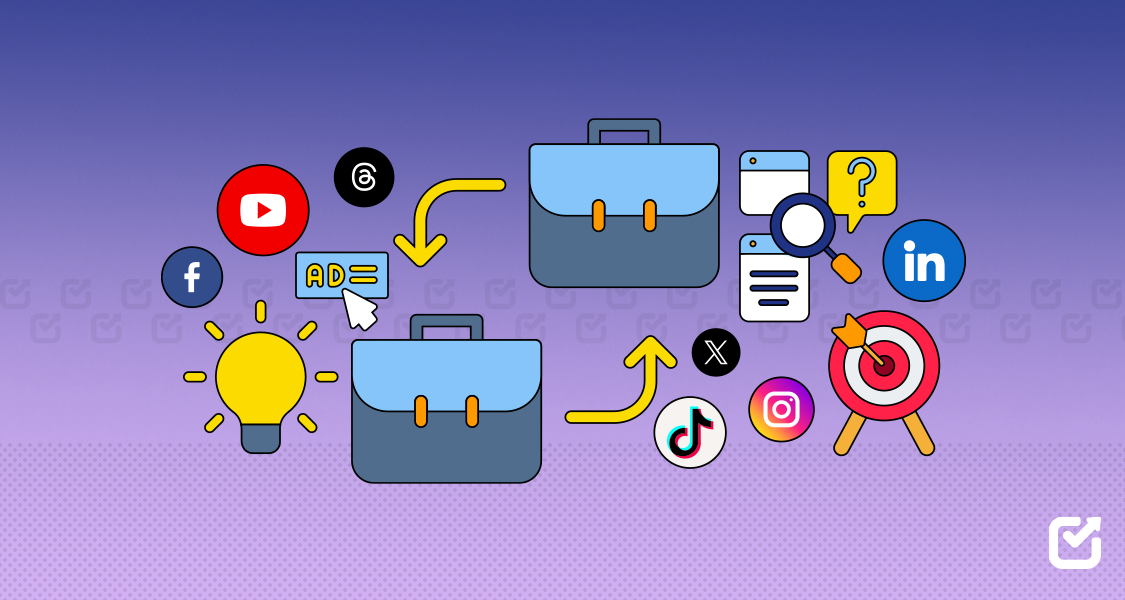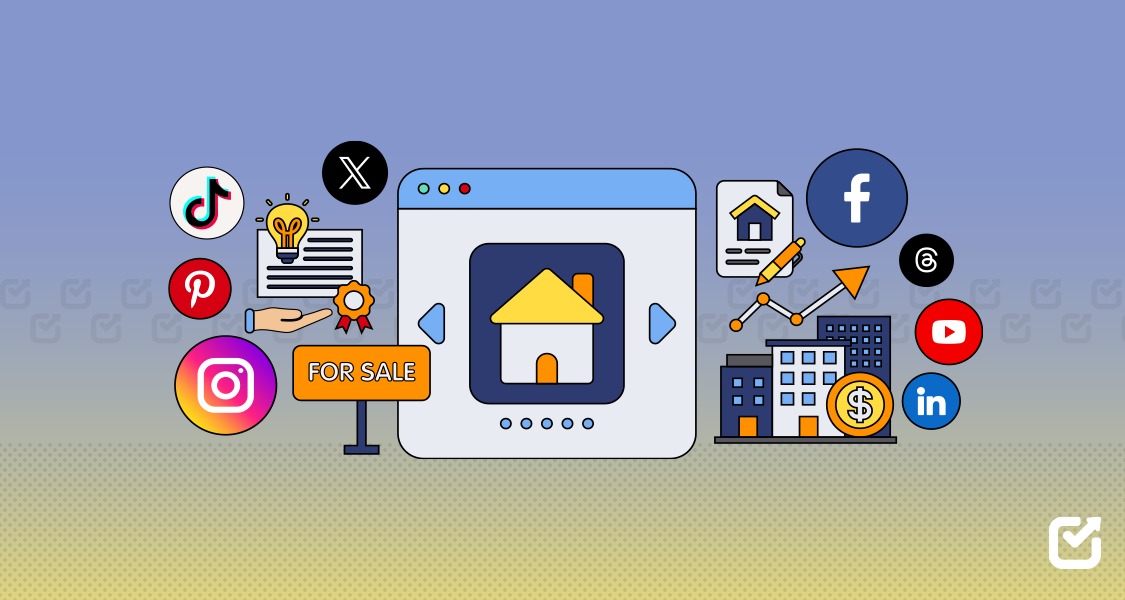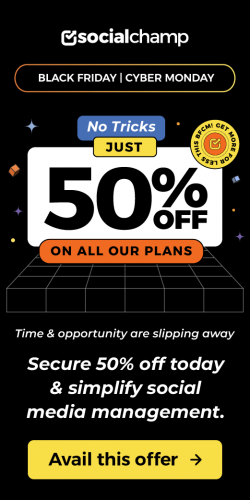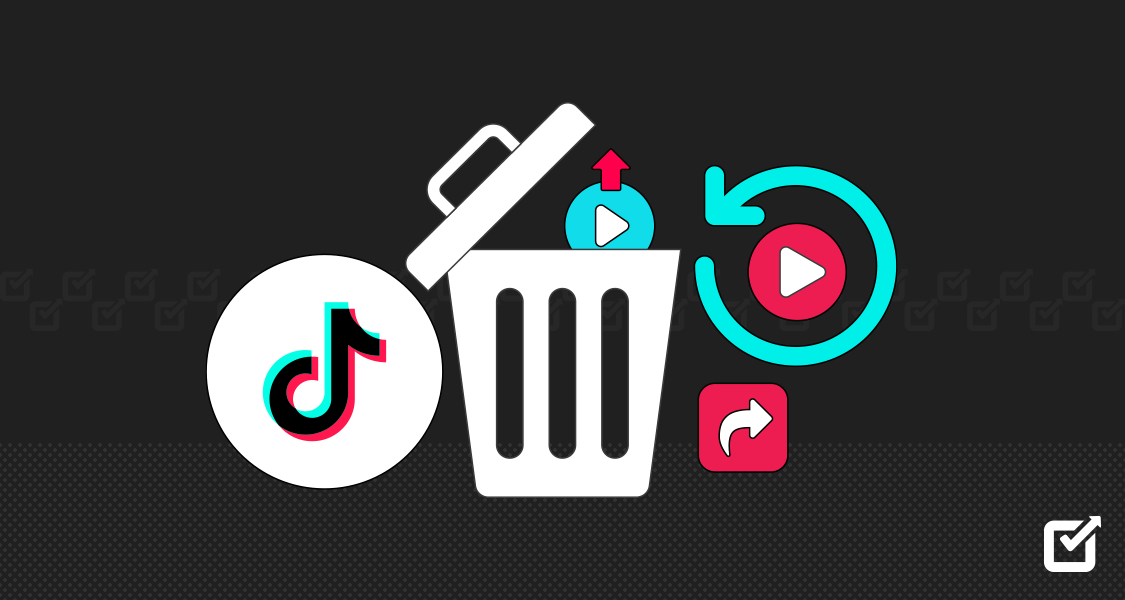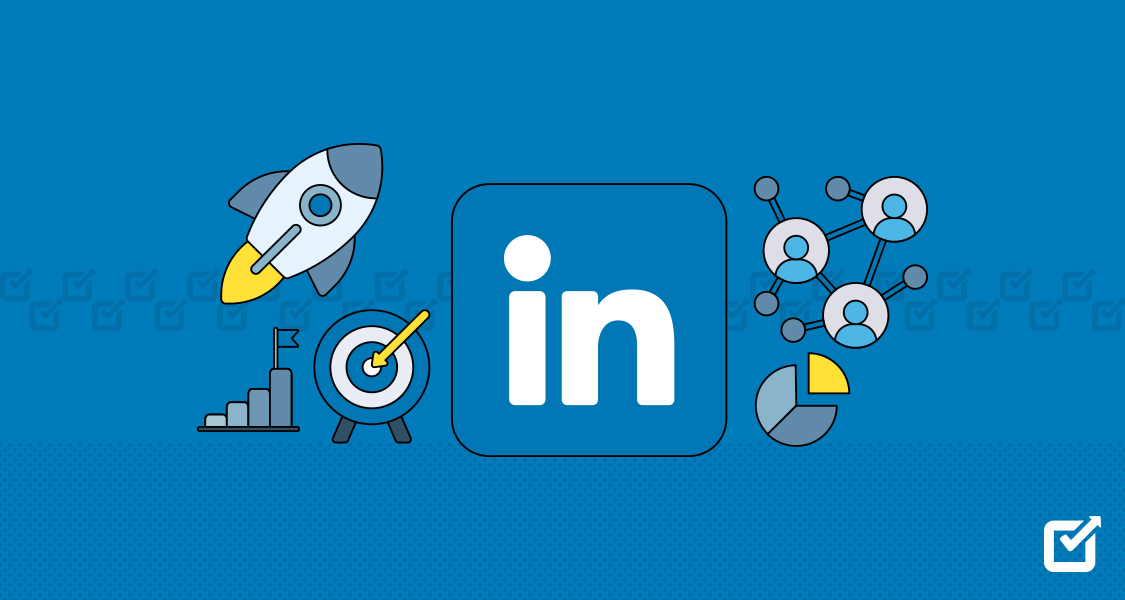The worst thing you can do for your B2B business is handle its marketing the same as B2C.
Most companies, especially startups, make the mistake of not tailoring popular B2C marketing strategies according to their B2B target market.
Yes, social media marketing is important. But you can’t convince an enterprise to buy your product by sharing a cutesy influencer review.
B2B social media practices are entirely different from B2C social networking strategies.
So, how do you stand out in a world where everyone’s shouting for attention?
In this post, I’ll give you 20 strategies that will help you make social media marketing work for your business.
Ready to make some sales?
Let’s go.

Your B2B Marketing Doesn’t Have to Be So Nerve-Wracking!
Social Champ makes B2B social media easy, so you can finally get results without the headache.
Short Summary
- B2B social media marketing focuses on promoting business solutions to other businesses, emphasizing professionalism and trust-building.
- B2B marketing targets business decision-makers with educational, value-driven content, while B2C focuses on emotional appeal.
- Effective B2B marketing requires you to clearly define objectives (e.g., lead generation, brand awareness) and set measurable KPIs like CTR, conversion rates, and engagement.
- You must also know your target audience’s pain points, needs, and behaviors to tailor content and approach.
- You can streamline B2B social media efforts with scheduling, analytics, and optimization for better campaign performance through tools like Social Champ.
What Is B2B Social Media Marketing and Why Does It Matter?
B2B social media marketing refers to the use of social media platforms by businesses to promote their products or services to other businesses rather than individual consumers.
The goal is to build relationships, foster engagement, and generate sales leads in a more professional, targeted manner than traditional consumer-facing marketing.
Unlike B2C (Business to Consumer) marketing, which focuses on emotional appeal and consumer-centric experiences, B2B marketing revolves around building trust, providing solutions to business pain points, and showcasing expertise.
This means your social media marketing strategy for B2B must prioritize education, value, and professionalism over flashy campaigns.
For example, while B2C companies might share product-driven posts and customer success stories, B2B businesses often focus on thought leadership, case studies, and industry-specific content that resonates with other companies facing similar challenges.
This requires a different approach to content creation, audience targeting, and platform selection.
Why Does B2B Social Media Marketing Matter?
B2B social media marketing is crucial because it allows businesses to:
- Increase Brand Awareness
Social media offers a powerful platform for establishing your brand as an authority in your industry.
In fact, 71% of consumers are likely to recommend a brand if they had a positive social media experience with it.
- Generate Quality Leads
You can connect with decision-makers and business leaders, helping to drive high-quality leads.
87% of buyers believe social media helps them make shopping decisions, and 75% of B2B buyers use social media to inform purchasing decisions.
- Enhance Customer Relationships
Social media is a great way to interact with your current customers and create long-lasting relationships.
Customers spend 20–40% more on brands that respond to customer service requests on social media.
- Drive Traffic and Sales
Targeted ads and organic posts can drive visitors to your website and convert them into clients.
Companies with a strong social media presence generate an average of 17% more leads than those without.
With a well-crafted strategy, B2B social media marketing provides immense opportunities to expand your reach, foster engagement, and generate new business opportunities.
Featured Article: Social Media Marketing for B2B: Strategies for Success in 2025
Key Fundamentals for Building a Winning B2B Social Media Strategy
Creating a successful B2B social media strategy requires understanding your audience, setting clear goals, and selecting the right platforms for engagement.
Below are the key fundamentals you should follow:
-
Identify Your Audience
Knowing your audience is the cornerstone of any B2B social media strategy. Define who your target businesses are—consider their size, industry, geographic location, and key decision-makers.
Understand their pain points and challenges so you can offer them solutions. Use tools like LinkedIn and Twitter to research your prospects and see what they engage with.
-
Set Clear Objectives
What do you want to achieve through your B2B social media marketing?
Whether it’s increasing brand awareness, generating leads, or building relationships with partners, your goals must be clear and measurable.
Align these goals with broader business objectives for the best results.
-
Create High-Quality Content
Content is at the heart of B2B social media marketing.
Whether it’s informative blog posts, whitepapers, case studies, infographics, or videos, your content must address the specific needs of your target audience.
Educating your audience and positioning your brand as an industry leader will drive engagement.
-
Choose the Right Social Media Platforms
Not all social media platforms are equally effective for B2B marketing.
LinkedIn is the go-to platform for B2B companies, especially for lead generation and thought leadership.
Twitter, Facebook, and even Instagram can also be effective depending on your audience. Use each platform according to its strengths.
-
Measure and Optimize
Regularly monitor your social media campaigns to understand which strategies are working and which need improvement.
Use analytics tools to track engagement rates, conversions, and traffic. This allows you to refine your strategy, improve ROI, and stay ahead of the competition.
Top 20 Strategies to Maximize ROI With B2B Social Media in 2025
Let’s take a look at some strategies for maximizing ROI with B2B social media marketing!
Leverage LinkedIn Ads
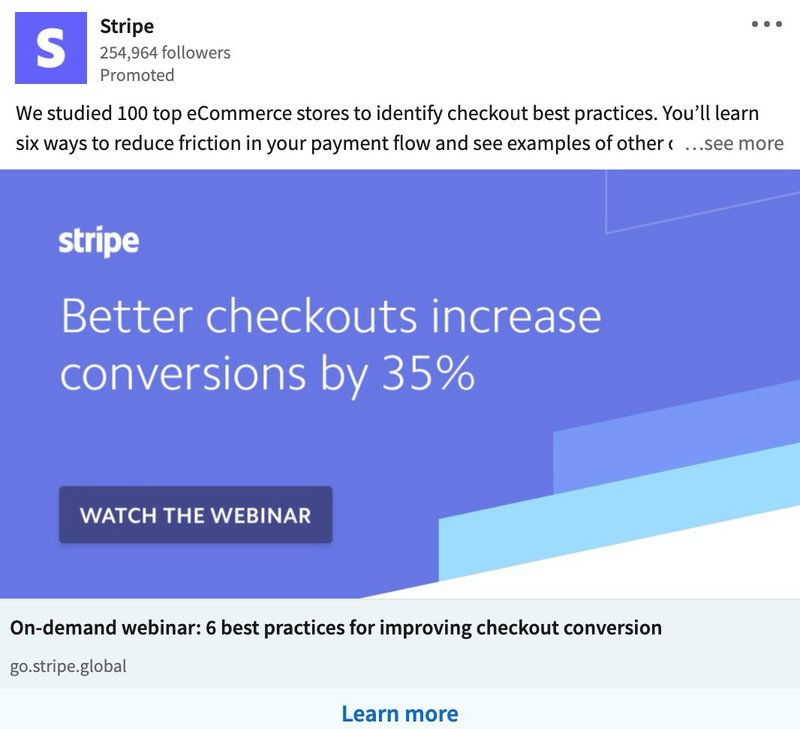
LinkedIn remains the most influential platform for B2B marketing due to its professional nature and highly targeted audience.
With LinkedIn Ads, businesses can precisely target decision-makers, industry leaders, and specific job titles.
This ability to drill down into your ideal audience ensures that your advertising efforts are focused and effective. LinkedIn offers a variety of ad formats to suit different campaign goals:
- Sponsored Content: These are native ads that appear directly in users’ feeds, offering a seamless experience. Sponsored Content is perfect for promoting blog posts, whitepapers, or case studies.
- Message Ads: These allow you to send personalized messages directly to the inbox of your target audience. This format is ideal for direct outreach, event invitations, or lead nurturing campaigns.
- Dynamic Ads: These ads are personalized to each viewer, such as showcasing your company’s logo or product, making them more engaging and tailored. With these, you can increase brand visibility and conversion rates.
By utilizing these formats, LinkedIn Ads can significantly boost brand visibility, generate qualified leads, and help establish authority in your industry.
Implement Employee Advocacy Programs
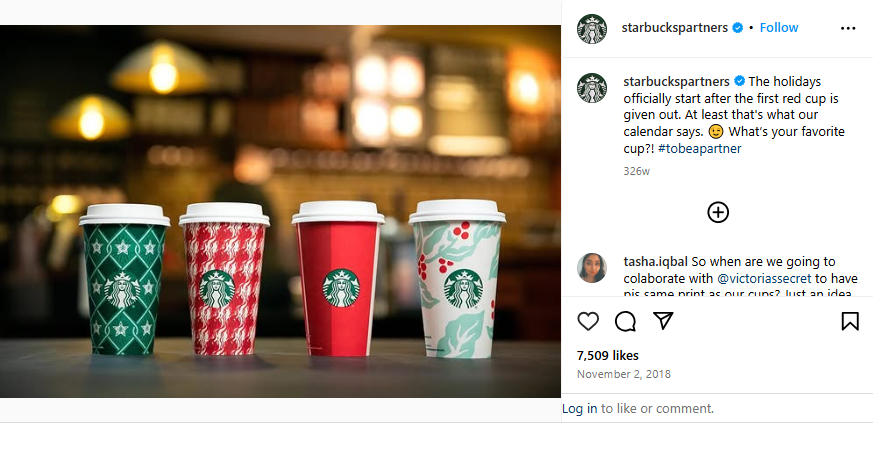
Empowering your employees to act as brand ambassadors can have a profound impact on your marketing efforts.
Employee advocacy involves encouraging staff to share company content on their personal social media profiles.
This approach helps humanize your brand, builds trust, and extends your reach into employees’ personal networks—networks that may contain potential clients, partners, or decision-makers.
Research shows that consumers trust people over brands, and your employees’ social networks are likely to be more receptive to content shared by someone they know.
Employee-driven content has the added benefit of providing authenticity and credibility. Establishing a structured employee advocacy program with clear guidelines and incentives can help align your team’s efforts and ensure consistent messaging across social media platforms.
Content Repurposing
To maximize the return on investment (ROI) of your content marketing efforts, consider content repurposing.
Repurposing allows you to extend the life of your content and ensure it reaches a broader audience without starting from scratch. For instance:
- Blog to Infographic: Transform detailed blog posts into visually engaging infographics that are easily shareable on platforms like Pinterest or LinkedIn.
- Webinar to Snippets: Break down long webinars into short, digestible video clips that can be shared across social media, keeping your content in circulation for longer periods.
- Case Study to Social Media Posts: Repurpose in-depth case studies into a series of engaging social media posts that highlight key takeaways, creating a buzz without much additional effort.
Repurposing content allows you to save time, increase content longevity, and improve engagement rates, all while maintaining a consistent messaging strategy across multiple platforms.
Collaborate With Influencers in Your Industry
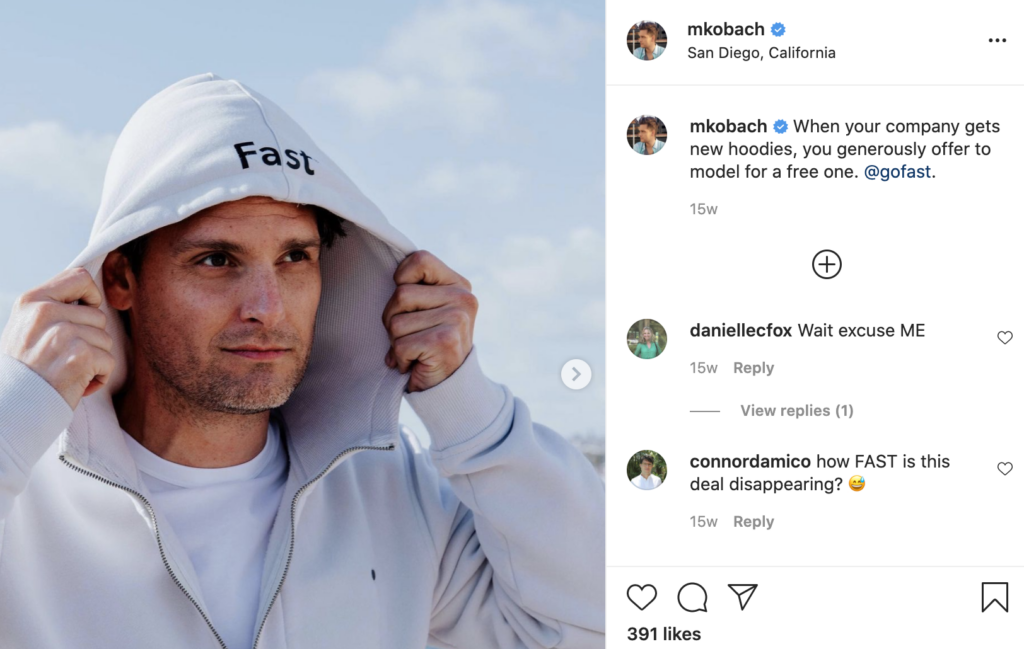
The rise of B2B influencer marketing has opened new doors for brand visibility and credibility.
Identifying the right influencers—thought leaders, industry experts, or individuals with substantial followings within your niche—can amplify your message and significantly extend your reach.
By partnering with influencers, you can co-create content that speaks directly to your target audience’s needs, providing valuable insights while positioning your brand as a trusted authority.
Influencers add credibility to your products or services by earning the trust of their followers.
Through collaborative efforts like co-branded blog posts, joint webinars, or targeted social media campaigns, they can amplify your brand’s reach, boost awareness, and build strong connections with a broader audience.
Collaborating with well-regarded influencers can also help you tap into new markets and generate quality leads that might have been difficult to reach otherwise.
Host Webinars and Live Q&A Sessions

Hosting live events, such as webinars or Q&A sessions, is a powerful way to engage with your audience, establish thought leadership, and generate leads.
These formats allow you to interact directly with potential clients, address their concerns in real time, and showcase your expertise in a specific area.
- Webinars: These provide an opportunity to deliver in-depth knowledge on a particular topic, providing value to your audience while demonstrating your industry authority. Webinars can also be recorded and repurposed into on-demand content, further extending their reach.
- Live Q&A Sessions: Live sessions give your audience an opportunity to ask questions and get real-time answers. These sessions help foster trust and rapport with potential clients, allowing you to build stronger relationships and better understand your audience’s needs.
Offering valuable information and creating direct interactions, webinars, and live Q&A sessions can nurture relationships, build brand loyalty, and generate qualified leads for your business.
Create Interactive Content
Interactive content such as polls, quizzes, surveys, and interactive infographics can dramatically increase engagement with your audience.
Unlike static content, interactive elements encourage participation, making your audience feel more involved.
These tactics not only boost engagement but also provide invaluable insights into your audience’s preferences, interests, and behaviors.
By collecting responses and analyzing interactions, you can better tailor future content and offers to meet their needs.
Moreover, interactive content can serve as an effective lead generation tool, as people who engage with these types of content are more likely to provide their contact information, download resources, or move further down the sales funnel.
Focus on Video Marketing
Video content stands out as one of the most engaging and easily consumable forms of media.
From explainer videos and customer testimonials to behind-the-scenes footage and product demos, video helps to humanize your brand and connect with your audience on a deeper level.
Studies show that people are more likely to remember video content than other forms of content, which makes it a powerful tool for storytelling.
Videos are a powerful tool for showcasing your product’s benefits, simplifying complex concepts, and sharing customer success stories.
They deliver your message with clarity and impact, driving higher engagement and boosting conversions.
Share Case Studies and Success Stories
Case studies and success stories are some of the most persuasive forms of content in B2B marketing.
These stories provide real-world examples of how your product or service has solved specific problems for clients.
By showcasing measurable results, such as increased efficiency, cost savings, or revenue growth, you offer social proof that your offerings deliver tangible value.
Sharing case studies and success stories builds credibility and trust and can significantly influence potential customers’ purchasing decisions.
These stories not only demonstrate your expertise but also show potential clients how you’ve successfully tackled challenges similar to theirs, making them more likely to trust you with their business.
Run Targeted Ads
Paid advertising on platforms like LinkedIn, Facebook, or Google enables you to reach specific audiences based on detailed targeting criteria, such as industry, job title, company size, location, and even behavioral data.
Running targeted ads ensures that your marketing budget is spent efficiently by reaching the most relevant prospects.
With the right targeting, your ads can increase brand awareness, drive traffic to your website, and generate qualified leads.
This level of specificity improves conversion rates, as your message is delivered to individuals who are most likely to resonate with your product or service.
Furthermore, platforms like LinkedIn allow for more personalized ad formats, such as Sponsored InMail, which can drive even greater engagement with decision-makers.
Use Hashtags Strategically
Hashtags are a powerful tool for expanding your reach on social media.
By using relevant, industry-specific hashtags, your content can appear in searches or trending topics related to your business.
This helps attract an audience who is already interested in your niche, increasing the visibility of your posts and boosting engagement.
However, it’s important to use hashtags strategically—choose a few key hashtags that are relevant and likely to connect with your target audience.
Avoid overloading your posts with hashtags, as this can dilute your message and reduce the effectiveness of your campaign.
Research popular hashtags in your industry and mix them with your unique branded hashtags to enhance your content’s reach and visibility.
Engage in Thought Leadership
Establishing your brand as a thought leader is one of the most effective ways to build trust and attract decision-makers in your industry.
By consistently sharing insightful articles, industry analyses, and opinions that offer value to your audience, you demonstrate expertise and leadership.
Thought leadership content helps you stand out as a trusted voice within your field, which can foster stronger relationships with current and potential clients.
These types of content are highly shareable and often spark conversations, putting your brand at the forefront when decision-makers are evaluating potential partners or solutions.
As a result, your products or services are more likely to be considered when these individuals or businesses are making purchasing decisions.
Implement Social Listening
Social listening is the practice of monitoring conversations around your brand, competitors, and industry trends across social media platforms.
By carefully tracking mentions, hashtags, and keywords relevant to your business, you gain a deeper understanding of your audience’s pain points, preferences, and needs.
This valuable insight allows you to tailor your content, products, and services to better meet those needs.
Social listening also helps you identify emerging trends, customer sentiment, and potential leads—giving you a competitive edge in both your content strategy and sales approach.
Additionally, engaging with mentions of your brand in real-time can help build rapport and loyalty with your audience, showing that you’re active and responsive.

Stay Ahead of the Conversation!
Monitor brand mentions, track competitors, and uncover insights to refine your B2B strategy—all in one place with Social Champ’s Social Listening.
Run Contests and Giveaways
While contests and giveaways are often seen as tactics for B2C marketing, they can be creatively leveraged in the B2B space to increase engagement, expand your reach, and generate leads.
Offering valuable prizes, such as free consultations, exclusive industry reports, or discounted services, can attract business owners, decision-makers, and potential partners.
These activities encourage interaction, drive traffic to your website or social media profiles, and build brand awareness.
Designing contests that prompt participants to engage with your brand—such as sharing content, referring friends, or signing up for newsletters—not only helps generate valuable leads but also sparks meaningful conversations that can grow into lasting business relationships.
Optimize Your Profiles
Your social media profiles are often the first point of contact between your brand and potential clients or partners.
Therefore, it’s crucial to ensure that your profiles are fully optimized. This includes updating your logos, cover images, and bios to reflect your brand’s values, mission, and services.
Your bio should clearly communicate what your business does, and your links should direct users to key pages, such as your website, product pages, or recent case studies.
Well-optimized profiles increase your credibility, encourage people to learn more about your brand, and make it easier for prospects to engage with you.
Consistently updating your profile with relevant content and insights will also keep it dynamic and engaging, attracting more interest from your target audience.
Publish Thoughtful Blog Content
A business blog is a powerful tool for attracting and engaging your audience.
By publishing thoughtful, well-researched blog posts that address your audience’s questions and concerns, you position your business as a go-to resource in your industry.
Focus on providing solutions to the problems your audience is experiencing, offering practical advice, and sharing industry best practices.
Your blog serves as a central hub for your content marketing strategy, offering a place where prospects can learn more about your products, services, and expertise.
When you share these posts across social media and email newsletters, you drive traffic back to your website, nurture leads, and further solidify your authority in the industry.
Regularly publishing blog content helps keep your audience engaged, informed, and more likely to turn to your brand when they need solutions.
Use Chatbots for Instant Engagement
Chatbots are an excellent tool for engaging with prospects instantly and efficiently. These AI-powered systems can provide real-time responses to questions, help visitors navigate your website, and even assist in booking meetings.
By integrating chatbots on social media platforms, websites, and landing pages, businesses can create a seamless experience for leads and customers.
Chatbots can handle basic queries, offer product recommendations, and collect vital lead information, allowing your sales team to focus on more complex tasks.
Moreover, they never sleep, meaning they can engage prospects around the clock, providing immediate responses and building trust with potential clients who appreciate fast, efficient interactions.
Personalize Your Outreach
Personalization in B2B marketing is essential for creating meaningful relationships.
Instead of sending generic outreach messages to a broad audience, take the time to customize your communication based on the specific needs, interests, or challenges of the business or individual you’re targeting.
Personalization goes beyond using the recipient’s name—it involves understanding their pain points, referring to their company’s unique situation, and offering tailored solutions.
This approach not only increases the chances of a response but also demonstrates that you’ve invested time in understanding their needs.
By building this personal connection, you’re more likely to stand out in a crowded inbox and nurture long-term relationships.
Share Behind-the-Scenes Content
Everyone loves a peek behind the curtain, and sharing behind-the-scenes content can humanize your brand and give your audience a deeper connection to your business.
Behind-the-scenes content, like capturing team-building activities, showcasing the production process, or introducing your employees, offers audiences an authentic glimpse into your company culture and values.
This kind of content helps break down the corporate wall, making your business feel more approachable and relatable.
Plus, it’s a great way to build trust and showcase the people and processes that drive your company’s success.
Authenticity in behind-the-scenes content fosters a sense of transparency, which can enhance credibility with potential clients.
Use User-Generated Content (UGC)
User-Generated Content (UGC) is a powerful way to build trust and credibility with your audience.
Encouraging your clients, customers, and followers to share their experiences with your product or service not only amplifies your message but also serves as authentic social proof.
UGC can be anything from testimonials, reviews, photos, or videos showing how your product is used.
When other people see real-world examples of your offerings in action, they are more likely to trust your brand.
Repurposing UGC for your social media posts or marketing campaigns allows you to showcase customer satisfaction while reducing content creation costs.
Plus, sharing UGC helps foster a sense of community and makes customers feel valued, turning them into advocates for your brand.
Monitor Competitors’ Social Media
Staying on top of what your competitors are doing on social media can provide critical insights into what’s working (and what’s not) in your industry.
By monitoring competitor activity, you can identify gaps in their approach, discover new trends, and gain inspiration for improving your own strategy.
Tools like Social Champ, Hootsuite, or BuzzSumo allow you to track competitor performance, analyze their content, and monitor engagement levels.
This helps you adapt your strategy, find areas where you can outperform them, and fine-tune your messaging.
Competitor analysis is not just about copying what others are doing; it’s about learning from their successes and mistakes so you can stay ahead of the curve and offer a more compelling value proposition to your audience.

Outsmart the Competition!
Track your competitors’ social media performance, analyze trends, and refine your strategy with data-driven insights—all with Social Champ’s Competitor Analysis.
Simplify Your Social Media Efforts with Social Champ’s B2B Marketing Tools
Managing multiple B2B social media accounts and campaigns can be a daunting task. However, with the right tools, you can streamline your efforts and improve efficiency.
Social Champ is an all-in-one platform that helps businesses schedule, analyze, and optimize their social media posts.
Social Champ’s features include:
- Scheduling and Automation: Schedule posts in advance across multiple platforms to ensure consistency and save time.
- Analytics: Track key metrics like engagement rates, clicks, conversions, and follower growth, helping you measure the effectiveness of your campaigns.
- Content Curation: Easily find and share industry-relevant content with your audience to position your brand as a thought leader.
- Team Collaboration: Allow team members to collaborate on campaigns, providing more streamlined management of your social media marketing efforts.
Incorporating Social Champ into your strategy can simplify your workflow, enhance your content scheduling, and give you the insights needed to maximize your ROI.

Still Juggling Social Media Across 11 Platforms?
Time to let Social Champ do the heavy lifting. Manage, schedule, and track like a pro. Your time’s too valuable for chaos.
Conclusion
B2B social media marketing is no longer a luxury—it’s a necessity for businesses looking to stay competitive in the digital age.
By understanding the unique nature of B2B marketing, building a solid strategy, and utilizing effective tools like Social Champ, you can elevate your marketing game and achieve measurable success.
Remember, consistency, value-driven content, and engagement are key to building long-term relationships with your audience.
As you implement these 20 strategies, you’ll position your brand for success and increase your return on investment through B2B social media.
